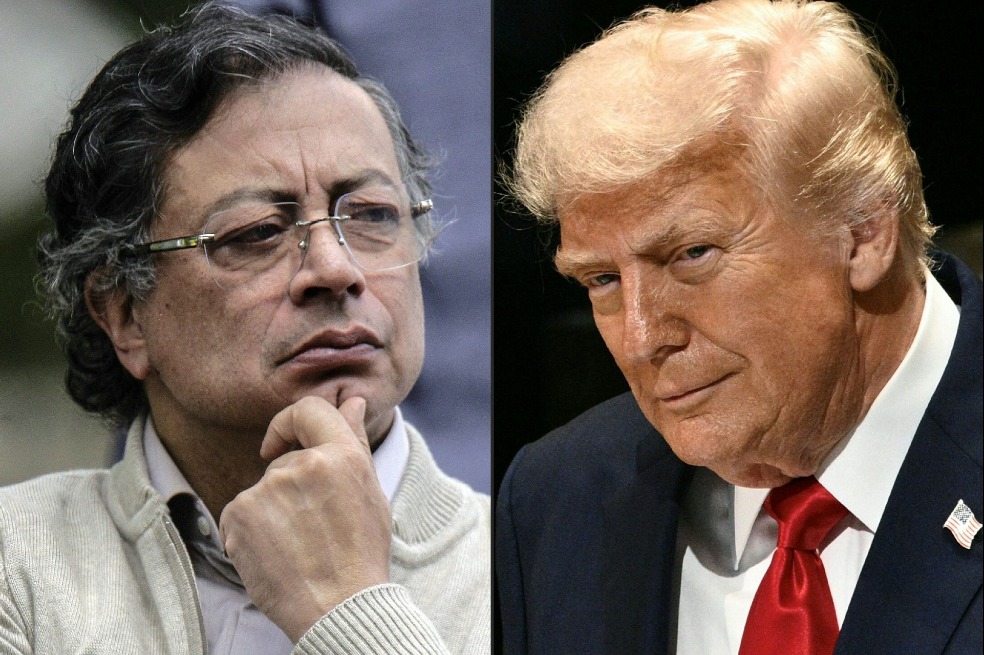Full text: The Report on Human Rights Violations in the United States in 2021

III. PLAYING WITH FAKE DEMOCRACY TRAMPLES ON POLITICAL RIGHTS
Political donations bring about transfers of interests after elections, political polarization further intensifies antagonism and division in the US society, and legislation and gerrymander restricting voting eligibility have become tools for parties to suppress the public opinion. The operation of the US political system is moving away from the public will and social demands, the right of the majority of the public to participate in politics is essentially deprived of, and international confidence in the US democratic system continues to decline.
The American-style democracy has descended to a game of transferring interests. Money politics become increasingly rampant in the United States, which makes politicians more neglectful of people's interests and demands.
Noam Chomsky, a political commentator and social activist at the Massachusetts Institute of Technology, has pointed out that there is a positive correlation between Americans' wealth and their influence on policy-making, and for about 70 percent on the income-wealth scale, they have no influence on policy whatsoever and are effectively disenfranchised. Ray La Raja, professor at the University of Massachusetts at Amherst, noted in an article for The Atlantic that America's current system is democratic only in form, not in substance, as the nominating process is vulnerable to manipulation by plutocrats, celebrities, media figures and activists, while many presidential-primary voters mistakenly back candidates who do not reflect their views.
According to The Guardian on Jan 7, 2021, candidates spent 14 billion US dollars alone on advertising for the 2020 US president election cycle. The US Consumer News and Business Channel (CNBC) reported on April 15, 2021 that Wall Street executives, their employees and trade associations invested at least 2.9 billion US dollars into political initiatives during the 2020 election cycle. The US media outlet Politico said on Nov 17, 2021 that a secret-money group "doled out" 410 million US dollars in 2020 to the Democratic Party, aiding the latter's efforts to win back control of the Senate.
In the 2020 presidential election, US pharmaceutical companies made huge political donations to both parties, and the Democratic administration, after taking office, invested an enormous sum of money back to the companies involved, with Moderna alone earning profit of nearly 1 billion US dollars. The federal government then funneled interests directly to pharmaceutical companies by purchasing large quantities of COVID-19 vaccines, resulting in massive hoarding and waste of vaccines in the United States. The US government gave pharmaceutical companies a free hand in pricing COVID-19 vaccines, leading to continuous increases in vaccine prices. The Financial Times reported that Pfizer raised the price of its COVID-19 vaccine for the European Union from 15.5 euros to 19.5 euros, and the price of a Moderna jab increased to 25.5 euros from 19 euros. However, the production cost of a Moderna dose is estimated to be less than 3 US dollars.
Political polarization leads to an increasingly divided US society. The election chaos in the United States has further intensified political polarization and continues to tear the society apart. On the afternoon of Jan 6, 2021, prompted by the incitement and manipulation of extreme politicians, tens of thousands of Americans who rejected the 2020 presidential election result flooded to Washington, D.C., and a large number of demonstrators forced their way into the Capitol building and clashed with police, leaving five dead and more than 140 injured. The constitutional process to affirm the presidential election result was interrupted. A Brookings online article in May 2021 indicated that though all 50 states certified the 2020 election results, 77 percent of Republican voters still questioned the legitimacy of the elected president due to allegations of electoral fraud, a phenomenon that happened for the first time in nearly 100 years.
Changes of government did not reduce or remove the political polarization in the United States. The American people are becoming more incompatible with each other over such issues as pandemic prevention and control, race relations, abortion rights and gun control, while the political struggle between Democrats and Republicans over infrastructure construction, social welfare bills, government debt ceiling and other legislation related to the economy and people's livelihood have become more intense, and the Congress has been nearly dysfunctional. A Republican leader even went so far as to deliver a record 8.5-hour speech in the Congress to block and delay a vote on a Democratic-proposed bill.
The Pew Research Center reported on Oct 13, 2021 that the United States was regarded as the most politically polarized country in a survey involving 17 advanced economies, as 90 percent of the American respondents said there are at least strong conflicts between those who support different parties, and about six-in-ten thought their fellow citizens disagree not only over policies, but also over basic facts.
Confrontations between political parties restrain and harm electors' right to vote. In order to win elections, Republicans and Democrats used legislation and gerrymander as well as other tactics to aggressively prevent voters who do not favor them from casting a ballot. In 2021, 49 states in the United States introduced more than 420 bills that would restrict voting. These bills either reduced the amount of time voters have to request or mail in a ballot, restricted the availability of drop-off locations, imposed stricter signature requirements for mail-in voting, or enacted new and stricter voter-ID requirements, which made mail-in voting and early voting harder and built barriers for the elderly, disabled, minorities and other groups to exercise their voting rights. NBC News reported on March 8, 2021 that the state of Georgia was pushing dozens of restrictive voting bills targeting African American voters. Voting rights experts and civil rights groups have argued that "the movement adds up to a national assault that would push voters of color out of the electorate."
Gerrymander has become a tool to suppress the political influence of minority voters. The Democratic and Republican parties exploit their political clout in each state to increase the chances of winning by redrawing congressional districts, often at the expense of the rights of minorities.
CNBC reported on Aug 13, 2021 that the practice of redrawing congressional districts often targets voters of color and the gerrymandering in Michigan, Ohio and Pennsylvania alone gave Republicans 16 to 17 more congressional seats. Daily newspaper the Chicago Tribune reported on Sept 3, 2021 that Illinois' redistricting aimed to keep Democrats in control of the state legislature for at least a decade. The American Civil Liberties Union (ACLU) reported on Nov 30, 2021 that the redrawn congressional districts for Ohio give Republicans an unconstitutional partisan advantage, with which the Republicans can anticipate winning 67 percent to 80 percent of the congressional seats -- even though they are only likely to obtain about 55 percent of the vote.
The Los Angeles Times reported on Dec 8, 2021 that although Texas has seen a significant increase of the number of people of color, its new redistricting plan intentionally diminished the power of Latino and African American voters. Latino Texans make up nearly 40 percent of the population, but just seven of the 38 congressional districts are predominantly Latino. Texas is home to the largest African American population in the country, but not one of the 38 congressional districts in the state is predominantly black. In a survey of the American public on the fairness of congressional districting, only 16 percent of the surveyed thought that congressional districts would be re-drawn fairly in their states.
The international community's confidence in US democracy continues to decline. A national poll of America's 18- to 29-year-olds released on Dec 1, 2021 by the Institute of Politics at Harvard Kennedy School showed that only 7 percent of the surveyed viewed the United States as a "healthy democracy," and 52 percent believed that the American democracy is either "in trouble" or "failing." Data released by the Pew Research Center in May 2021 indicated that the American public trust in the government neared a historic low since 1958, as only 2 percent of Americans said they can trust the US government to do what is right "just about always," and only 22 percent said they can trust the government to do what is right "most of the time."
In an opinion published on June 12, 2021, The Washington Post said that in the past few years the world has been horrified by the chaos, dysfunction and insanity of American democracy, which was seen by US allies as a shattered and washed-up has-been. British Prime Minister Boris Johnson said what happened on the Capital Hill was "disgraceful." German President Frank-Walter Steinmeier said the Capitol riot was "the result of lies and more lies, of divisiveness and contempt for democracy, of hatred and incitement -- even from the very highest level." A research has showed that just 14 percent of Germans and fewer than 10 percent citizens in New Zealand saw American democracy as a desirable model for other countries.
Despite the fact that the US democracy is proved to be a complete failure and its global image is badly damaged, the US government held the so-called "Leaders' Summit for Democracy" in a high profile, politicizing democracy and using it as a tool to form cliques and force other countries to take sides, in an attempt to split the world. The so-called "Leaders' Summit for Democracy" is in essence a summit that undermines global democracy, and has been widely criticized and condemned by the international community.
French political scientist Dominique Moisi said that it is always difficult to preach what one does so badly itself. USA Today, The New York Times, and other American media have also commented that American democracy is "falling apart" and the United States must first address its own failings, and that critics questioned "whether the United States could be an effective advocate for democracy amid problems at home."
































